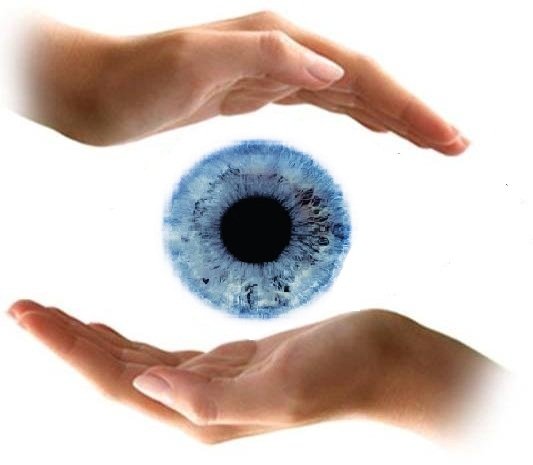Is Refractive Surgical Treatment Right for You? Aspects to Take Into Consideration for Better Eyecare
In the world of eye care, the decision to undertake refractive surgery is a crucial one that demands thoughtful consideration. As individuals seek clearness and freedom from the constraints of rehabilitative lenses, numerous variables come into play when establishing the suitability of such a procedure. From the ins and outs of one's ocular health and wellness to the complexities of individual assumptions and daily habits, each facet holds value in the wider landscape of refractive surgery candidacy. By evaluating these crucial elements with care and accuracy, a clearer course in the direction of notified decision-making emerges.
Eye Wellness Evaluation
When considering refractive surgical procedure, a detailed eye health and wellness examination is critical to assess the suitability of the procedure for every person. andalusia pediatrics. This assessment includes a series of examinations and assessments conducted by an eye treatment professional to figure out the general wellness of the eyes, the presence of any type of hidden problems, and the security of the refractive mistake
Throughout the assessment, various aspects are thought about, such as the patient's medical history, current eye prescription, corneal thickness, student dimension, and tear movie top quality. These analyses help to identify any type of contraindications to refractive surgical procedure, such as corneal problems, cataracts, or untreated eye infections. In addition, the examination aids to handle person assumptions regarding the prospective end results of the surgery based on their unique eye features.
Inevitably, the eye health assessment is vital in making sure the security and performance of refractive surgical treatment, as it gives useful insights right into the person's eye health status and helps figure out the most suitable therapy alternatives for achieving optimal visual outcomes. (eye center andalusia)
Way Of Life Evaluation
A thorough way of life assessment is integral in determining the suitability of refractive surgical procedure for a person's visual correction requirements. Way of life factors such as occupation, hobbies, and daily tasks play a crucial function in the decision-making procedure regarding refractive surgical treatment.
Furthermore, lifestyle behaviors such as sporting activities participation, outdoor tasks, or even skincare routines can affect the healing process and total success of refractive surgery. By carrying out an extensive way of living analysis, eye care experts can tailor their suggestions and treatment plans to satisfy the unique needs of each patient, inevitably leading to enhanced visual end results and complete satisfaction.
Assumption Alignment

People need to understand that while numerous individuals attain 20/20 vision or far better complying with refractive surgical procedure, some might still require glasses for certain tasks like analysis or driving at night. Taking care of these assumptions aids protect against dissatisfaction and frustration post-surgery, leading to an extra favorable total experience for the client.
Danger Analysis

Variables that might enhance the risk of issues consist of age, Click Here certain medical conditions like autoimmune diseases, unsteady vision prescription, thin corneas, and impractical patient expectations. In addition, selecting a proficient and knowledgeable doctor, complying with pre and post-operative treatment guidelines vigilantly, and divulging any kind of pertinent case history can help reduce threats.
To decrease the possibility of complications, ophthalmologists perform comprehensive pre-operative examinations to determine any kind of contraindications to surgical procedure. They also discuss the possible dangers and advantages with individuals throughout the assessment procedure. By engaging in open interaction and shared decision-making, both the patient and the ophthalmologist can interact to identify if refractive surgical procedure is the appropriate option based on private risk profiles and preferred outcomes.
Consultation Significance
Thinking about the crucial function of informed decision-making in assessing risks and prospective issues in refractive surgical treatment, the examination process holds substantial importance in directing people towards you could check here optimal end results. During the assessment, the eye doctor reviews the patient's eye health, refractive mistakes, and total suitability for surgery. This preliminary analysis is essential in determining one of the most suitable procedure for each and every person, taking into account factors such as corneal density, student dimension, and existing eye problems.
In addition, the examination acts as an opportunity for people to discuss their assumptions, issues, and any inquiries they may have pertaining to the surgery. Clear interaction between the person and the specialist is vital to make certain realistic assumptions and a complete understanding of the potential threats and benefits involved.
Furthermore, the assessment permits the doctor to discuss the different surgical choices available, their respective outcomes, and the post-operative treatment needed. This detailed discussion empowers individuals to make educated choices about their eye care, resulting in better fulfillment and results post-surgery.
Final Thought
Finally, individuals considering refractive surgical procedure must undergo a detailed eye health and wellness analysis, evaluate their lifestyle practices, align their expectations with potential end results, evaluate the associated dangers, and focus on consultations with eye treatment specialists. These variables play a vital duty in establishing the suitability of refractive surgery for every individual, guaranteeing ideal outcomes and fulfillment with the procedure.
People considering refractive surgery usually have high expectations pertaining to the outcomes, anticipating best vision without the demand for glasses or contact lenses. While refractive check out this site surgical treatment can significantly improve vision and lower dependency on aesthetic aids, it is essential for patients to comprehend that outcomes might differ based on individual aspects such as the degree of refractive error, corneal density, and overall eye health.
By engaging in open interaction and shared decision-making, both the ophthalmologist and the client can function together to determine if refractive surgery is the right option based on private threat accounts and desired results.
Considering the vital function of notified decision-making in examining risks and possible problems in refractive surgery, the consultation procedure holds considerable importance in assisting individuals in the direction of optimal end results. Throughout the examination, the ophthalmologist reviews the person's eye wellness, refractive mistakes, and total suitability for surgery.